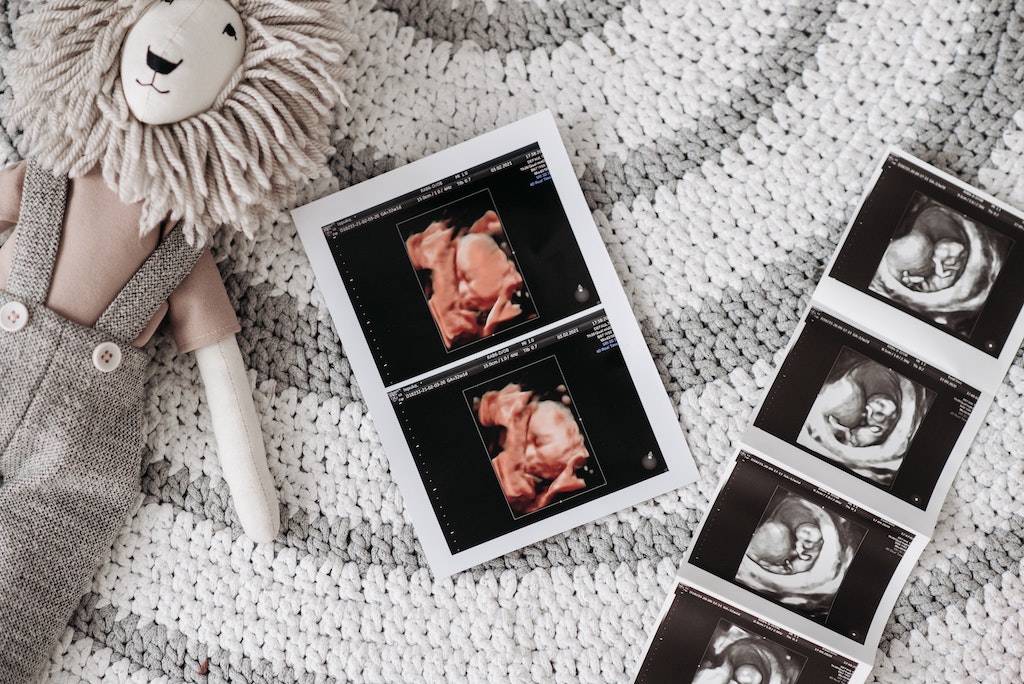Your exciting journey into parenthood is about to begin. From the early signs to the first steps into pregnancy, you might wonder about prenatal care in the Netherlands with millions of questions roaming in your head. Let’s guide you through the most important steps and information you need to know as you embark on this wonderful experience.

We wrote this short guide to give you an overall idea of what to usually expect from prenatal care in the Netherlands. Please note however that things can vary from one practice to another, each midwife and each practice having their own approach, some for instance offering alternative approaches such as Centering Pregnancy.
Table of content
1- Confirming Pregnancy and Initial Medical Appointment
2- Ultrasound and Prenatal Screening
3- Pregnancy Monitoring by your Midwife
4- Blood Tests and Vaccination Recommendations
5- Preparing for Childbirth and Postpartum
6- Choosing where to give birth
7- Your first days post-birth
1- Confirming Pregnancy and Initial Medical Appointment
Congratulations, you are pregnant! Or at least you suspect it 🙂 Whether it’s a delay in your period, a few symptoms such as nausea, fatigue, or heavy breasts, or a positive urine test, the question remains the same: what should I do now? Prenatal care in the Netherlands may be quite different from that in your home country.
The first thing to do is to make an appointment with your GP or a midwife. They won’t prescribe a blood test to measure β-hCG (the pregnancy hormone), but will perform a scan at an ultrasound clinic or midwife’s practice around 10 weeks of amenorrhea (absence of menstruation). This ultrasound is the termijnecho. It verifies the evolution of the pregnancy, its location, the number of embryos, and their age.
In the first weeks of pregnancy, it is also important to start arranging Kraamzorg as soon as you can. There is a shortage of kraamverzogsters (maternity nurses) in the Netherlands at the moment so depending on where you live, the sooner you arrange it, the better. There two options to hire a kraamverzorgster:
- You can either register in a kraambureau, an agency regrouping several kraamverzorgsters; in that case you won’t necessarily know who will come to your home,
- or you can hire an independent kraamverzogster.
Most will offer you an online or face-to-face intake around the 7th month.
2- Ultrasounds and Prenatal Screening
Dutch basic health insurance reimburses 3 ultrasounds:
- the termijnecho at 10-12 weeks,
- the 13-wekenecho at 13 weeks,
- and the 20-wekenecho at 20 weeks.
But it’s possible to have more echos covered depending on the additional package you choose. Some insurance companies also cover an early ultrasound for various reasons, for instance for bleeding, history of miscarriage.
The 13-wekenecho is part of a national scientific survey and consists of a medical examination to look for possible abnormalities in the baby.
The 20-wekenecho is a very complete examination during the echoscopist will carefully examine each of the baby’s organs. Of course, if there is a medical need for another echo, for instance for growth control or to check the baby’s position), an additional ultrasound will be scheduled. It will also be reimbursed by health insurance.
You can choose to search for genetic abnormalities (Down Syndrome, for example). This can be done after scheduling a specific appointment dedicated to this subject.

In addition, many practices also offer the possibility to have ultrasounds without medical indication, for instance for gender reveal, growth… These are called pretechos, or “echos for fun”. They are available in 2D, 3D or even 4D.
Further information on ultrasound and prenatal screening can be found here.
3- Pregnancy Monitoring by your Midwife
Midwives are the healthcare providers in charge of prenatal care in the Netherlands (providing there is no medical indication). They usually work in practices, with several midwives working together, who will arrange for you to see each of them at least once during your pregnancy. This will allow you to get familiar with all of them. The frequency of appointments varies from practice to practice, but it’s usually every 4 to 6 weeks. The closer you get to the end of your pregnancy, the more frequent the appointments.
The aim of pregnancy monitoring is to ensure that the pregnancy is progressing well. Pregnancy is not an illness, but there are certain things the medical team around you needs to make sure of. Each consultation usually consists of a discussion with your midwife. She will ask you about:
- your baby’s movements,
- your feelings: pain, nausea, discomfort…,
- the presence of contractions, blood loss, or fluid loss.
Then follows a clinical examination, during which the midwife will listen to the baby’s heartbeat, measure your belly, estimate the baby’s position, and check your blood pressure. She may also give you a fingertip prick to check the haemoglobin level in your blood. This is also an opportunity to ask any questions you may have.
4- Blood Tests and Vaccination Recommendations
It is possible to get blood tests during pregnancy. However, they can be less extensive than those often prescribed in other countries. These include blood group, rhesus D and C, as well as tests for certain STDs such as HIV, hepatitis B, and syphilis. Antibodies against certain blood groups are also tested.
The Dutch government also recommends vaccination against whooping cough (kinkhoest) from 22 weeks. This protects the baby against this respiratory disease. If birth happens less than a month after vaccination, the child is considered unprotected. Therefore, he will follow the previous vaccination schedule, with vaccination at around 2 months.
5- Preparing for Childbirth and Postpartum
The prenatal care offered by your midwives is not meant to thoroughly prepare you for childbirth. It is rather aimed at making sure your pregnancy is progressing well. It’s actually up to you to look into your options if you’d like additional support to prepare for childbirth. Whether you decide to read books, take a childbirth preparation course or HypnoBirthing, hire a Doula, listen to podcasts,… there are loads of options to choose from, most of which you can easily find on Parentally.
There are also many options available to help you specifically prepare for postpartum. For instance, you could join breastfeeding preparation courses, postpartum planning, or look into the possibility of hiring a Postpartum Doulas or Coach to support you. It’s always a good idea to start looking into your options prior to giving birth. It will leave you ample time to choose and prepare without haste.
Most of these services are not covered by the basic health insurance. However they can partly be covered in some additional packages, for instance for childbirth courses. Breastfeeding support on the other is usually covered, but it’s always best to check your coverage and conditions beforehand.
6-Choosing where to give birth
Your midwife will also ask you to think about where you want to give birth. Some women in the Netherlands choose to give birth at home (about 13%*), while others prefer hospitals or birthing centers.
The important thing is to give birth where you feel safe. But just bear in mind, that childbirth doesn’t always go as planned. Therefore, your midwife may decide to transfer you to the hospital during labor if complications arise. This can happen in case of meconium in the amniotic fluid, failure to progress in labor. You will also need to be in the hospital if you wish a epidural.
You should also be aware that even if you live close to a hospital, you may be referred to a hospital farther away. This is due to lack of availability on the day of childbirth. This is not your midwife’s choice, nor yours.
7- Your first days post-birth
Your kraamverzogster will the one to offer postnatal care in the first days right after days. They will accompany you during your first days at home. For instance, they will guide you in all aspects of your newborn’s care: bathing, diaper changes, umbilical cord care.. In addition, they monitor your baby (temperature, weight gain) and yourself (help with breastfeeding, monitoring perineal or caesarean scars, your temperature). Some kraamzorg are real little fairies. They will also help you with housekeeping, prepare tasty dishes, or even help manage your elders.
If you’re having a home birth, your kraamverzogster can be there to assist you with your baby’s birth, always in addition to the midwife.
New parents can benefit of 24 to 80 hours of kraamzorg care in the first ten days after birth, from the date of birth. Your midwife will also come by to check on you soon after birth and make sure you and your baby are doing well.
Pregnancy check-ups allow midwives to ensure that everything is going perfectly well. This is the case for the majority of pregnancies. However in some cases, follow-up by an OB-GYN is necessary, for instance for twin pregnancies, certain maternal illnesses, or illnesses occurring during pregnancy (pre-eclampsia, foetal growth restriction, malformations seen on ultrasound, etc.). Each pregnancy is unique.
If you come from a foreign country, the Dutch healthcare system can be very different from what you know back home. This can be confusing for a (future) parent. Do not hesitate to take an active role in your pregnancy and ask your questions to the medical teams. You can also get further information for instance by getting in touch with other moms in your community, or by seeking extra professional support.
ARTICLES THAT MIGHT ALSO INTEREST YOU
Pregnant in the Netherlands: a shortguide in 5 steps
How to choose your midwife
What is Kraamzorg? Everything you need to know
Pregnancy fatigue? Why am I so tired?






Add comment